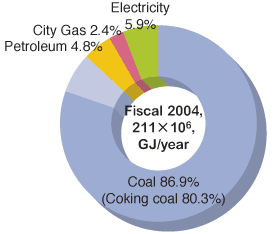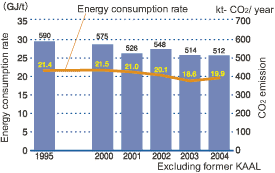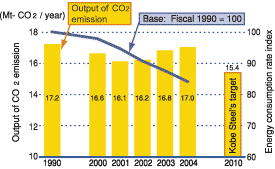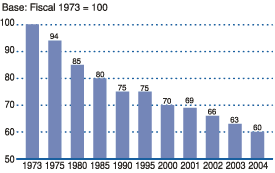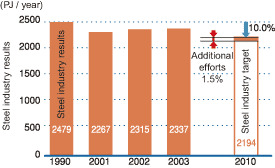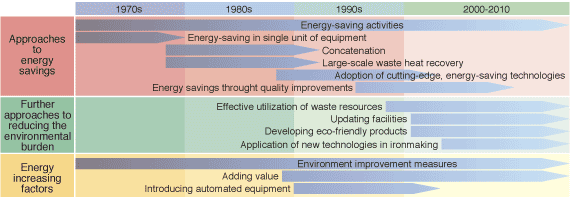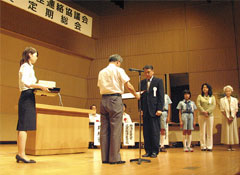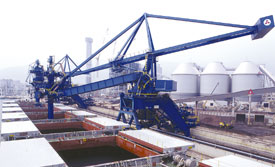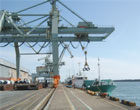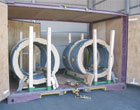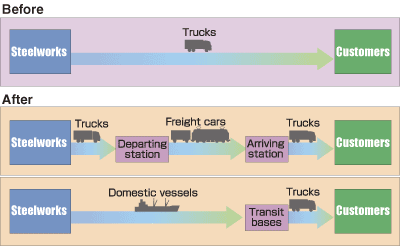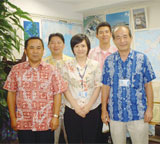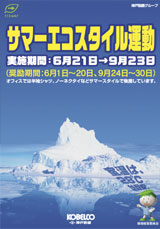Home > About Us > Corporate Social Responsibility > Sustainability Report > Environmental Sustainability Report 2005
| Environmental Management
Environmental Sustainability Report 2005 |
|||
| Environment-friendly Production (1) |
| [1] Measures against Global Warming |
Global warming is believed to be caused by the increase of greenhouse gases, such as carbon dioxide and methane, created by human activity. The Kyoto Protocol went into effect in February 2005, and preventive measures are being undertaken at an international level. Kobe Steel and its group companies are implementing energy-saving activities and reviewing energy use in their operations, in accordance with voluntary action plans in their respective industries.
|
|||||||||||||||||||||||||||||||||||||||||||||||||||||||||||||||||||||||||||||||||||||||||||||||||||||||||||||||||||||||||||||||

